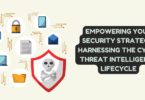
6 Essential Tips for Success in Online School
An online educational journey unlocks a world of possibilities, offering learners from various walks of life the chance to pursue their dreams without the constraints of traditional classroom settings. Whether your goal is personal enrichment, career progression, or a blend of both, success in the virtual classroom hinges on more than just signing in for lectures. It demands a proactive approach, discipline, and adopting strategies tailored to thrive in this unique learning environment.
This article delves into six crucial tips for navigating and excelling in your online school endeavors, ensuring that your digital academic journey is as rewarding and effective as possible.
Establish a Routine
One of the cornerstones of success in online education is the establishment of a structured daily routine. The freedom and flexibility that come with online learning are double-edged swords; without a disciplined approach, it’s easy to fall behind or feel overwhelmed. Crafting and sticking to a consistent schedule not only helps manage your time effectively but also instills a sense of normalcy and discipline akin to a traditional classroom experience.
Start by allocating specific hours of your day to studying, attending virtual classes, and completing assignments. Remember to incorporate breaks and leisure time to prevent burnout. A well-organized routine ensures you stay on top of your coursework and deadlines, making the learning process more manageable and less stressful.
Choose the Right Degree Program
Selecting the right online school degree program is the most important step for success. This decision should align with your career aspirations, interests, and lifestyle. Begin by researching accredited institutions to ensure the quality and recognition of your degree. Look into the format of the programs you’re interested in; some may offer more flexibility in terms of deadlines and exam schedules, which could be crucial if you’re balancing work and study. Additionally, delve into the course content to verify it matches your educational objectives and offers the depth of knowledge you seek.
Choosing the right program is a critical step that affects not only your academic success but also your future professional opportunities.
Create a Dedicated Study Space
The significance of a dedicated study space cannot be overstated when studying online. Your learning environment plays a crucial role in your ability to concentrate, absorb information, and produce quality work. Identify a quiet, comfortable spot in your home where distractions are minimal. This could be a spare room turned into a study or a corner of your bedroom designed for focus and productivity.
Ensure your study area is well-lit, equipped with a comfortable chair, and free from clutter. Personalize your space with items that motivate you, whether it’s inspirational quotes, a plant, or a photo of your goals. A designated study space enhances your focus and efficiency and psychologically prepares you to enter “study mode” each time you sit down, significantly improving your overall learning experience.
Leverage Online Resources
The digital nature of online education opens up a vast universe of resources that can significantly enhance your learning experience. Beyond the confines of your course materials, a wealth of information is waiting to be explored. Academic databases, virtual libraries, and specialized educational apps offer in-depth knowledge and supplementary information to broaden your understanding of subjects. These tools can also introduce you to different perspectives and methodologies that your coursework might not cover.
Engaging with these resources can deepen your expertise, foster critical thinking, and enhance your research skills. Encourage yourself to seek out podcasts, webinars, and online forums related to your field of study. Integrating these digital tools into your study routine enriches your education and equips you with a more comprehensive understanding of your chosen discipline.
Engage Actively with Your Peers and Instructors
One might think the online learning format inherently limits interaction, but this doesn’t have to be the case. Active engagement with instructors and peers can significantly enrich your online educational experience. Participate in discussion forums, attend virtual office hours, and collaborate on group projects. These interactions not only clarify doubts and expand your knowledge but also build a sense of community and belonging.
Effective communication with your instructors can provide insights into your progress and areas for improvement, while interactions with peers offer support, motivation, and the exchange of ideas.
Practice Self-Care
Pursuing an online degree requires significant time and energy, making it crucial to incorporate self-care into your routine. Balancing academic responsibilities with work, family, and personal life can be overwhelming, leading to stress and burnout if not managed properly.
Remember to take regular breaks during study sessions to rest your mind and avoid fatigue. Engage in physical activities to keep your body active and maintain mental clarity. Pursue hobbies and interests outside of your academic life to provide a healthy outlet for relaxation and self-expression. Practicing mindfulness or meditation can also help manage stress and maintain focus.
Conclusion
Succeeding in an online school goes beyond mastering the curriculum; it encompasses a holistic approach to managing your learning environment, resources, and well-being. These six essential tips guide you toward academic success and prepare you for lifelong learning and personal growth.
As you navigate your online educational journey, remember that your attitude and actions are pivotal to unlocking the full potential of this unique learning opportunity. Embrace the flexibility and challenges with a proactive mindset, and you’ll find that online education can be a rewarding pathway to achieving your goals.






